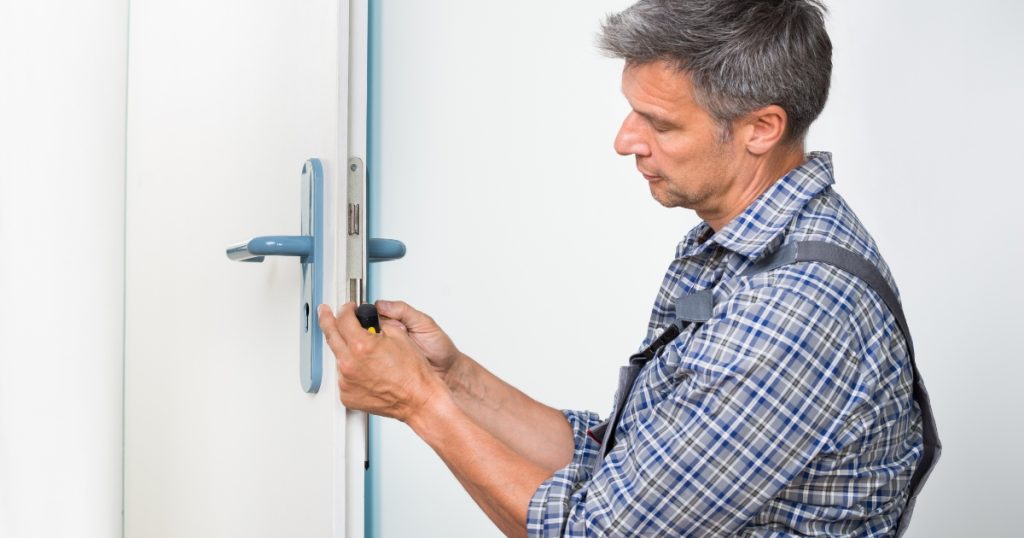As you return home after a long day at work, you realise you’ve misplaced your keys. Frustration and panic set in as you fumble through your bag and pockets, but to no avail.
With no other option, you decide to call a locksmith to help you gain access to your home.
But how can you be sure that the person you’re about to let into your home is a legitimate professional, and not an uncertified locksmith looking to exploit your vulnerability?
In this comprehensive guide, we’ll explore the warning signs of an uncertified local locksmith, the potential risks of hiring one, and how you can protect yourself from fraud and potential security issues.
The Importance of Hiring a Certified Locksmith
When you’re locked out of your home, car or office, it’s essential to hire a certified 24 hour locksmith to ensure the job is done correctly and securely. In this section, we’ll discuss what certification means in the locksmith industry and the potential dangers of hiring an uncertified professional.
Certification: What It Means and Why It Matters
In the UK, locksmiths are not legally required to hold a specific certification or licence. However, many professional locksmiths choose to undergo voluntary certification through recognised industry associations, such as the Master Locksmiths Association (MLA) or the Associated Locksmiths of Ireland (ALOI).
These certifications demonstrate a commitment to industry standards and best practices, as well as ongoing professional development and adherence to a code of ethics.
Certification is crucial because it ensures that a residential locksmith has the necessary skills, knowledge, and expertise to perform their job effectively and securely.
A certified locksmith is also more likely to be up-to-date with the latest tools, technologies, and security measures, which can provide additional peace of mind when entrusting them with your property’s security.
The Dangers of Hiring an Uncertified Locksmith
While many uncertified locksmiths may be honest and competent, hiring one poses several potential risks. These include:
- Subpar Workmanship: An uncertified locksmith may lack the necessary skills and expertise to perform the job correctly, leading to poor quality work and potential damage to your property.
- Security Risks: Uncertified locksmiths may not be familiar with or adhere to industry best practices, which can leave your property vulnerable to break-ins or other security breaches.
- Fraud: In some cases, uncertified locksmiths may be dishonest or fraudulent, taking advantage of customers in vulnerable situations to overcharge for their services or even steal from them directly.
- Lack of Accountability: Without a governing body or association to hold them accountable, uncertified locksmiths may be less likely to resolve disputes or address customer complaints satisfactorily.
Red Flags: How to Spot an Uncertified Locksmith
Being able to identify the warning signs of an uncertified locksmith can help protect you and your property from potential harm. Here are some red flags to watch out for when hiring a locksmith:
Lack of Proper Identification
A reputable locksmith should arrive in a clearly marked vehicle and be willing to present identification, such as a business card or ID badge, upon request. If a locksmith is hesitant to provide identification or their vehicle lacks company branding, this may be cause for concern.
Vague or Suspicious Communication
When contacting a locksmith, be wary of those who are vague or evasive about their credentials, services, or pricing. A legitimate locksmith should be transparent about their qualifications and be able to provide clear, detailed information about the services they offer.
Inconsistent Pricing and Hidden Fees
Uncertified locksmiths may attempt to take advantage of customers by providing low initial quotes, only to increase the price drastically once the work is completed. Be cautious of locksmiths who refuse to provide a written estimate or whose pricing seems too good to be true.
Inadequate Tools and Unprofessional Behaviour
A professional locksmith should have the appropriate tools and equipment to perform their job effectively. If a locksmith appears unprepared, disorganised or lacking the necessary tools, this may indicate a lack of experience or training.
Additionally, unprofessional behaviour, such as rudeness or a dismissive attitude, can be a red flag that the locksmith may not be reputable.
Rushed or Incomplete Work
An uncertified locksmith may be more interested in making a quick profit than in providing quality service. As a result, they may rush through the job or leave it incomplete, potentially causing damage to your property or compromising its security.
Tips for Choosing a Reputable Locksmith
To ensure you hire a certified and trustworthy locksmith, follow these tips:
Do Your Research
Before hiring a locksmith, take the time to research local providers online. Look for locksmiths who are affiliated with recognised industry associations, such as the MLA or ALOI, and who have a strong online presence, including a professional website and social media profiles.
Look for Reviews and Recommendations
Word of mouth can be a powerful tool for finding a reputable locksmith. Ask friends, family members, or colleagues for recommendations, and check online review platforms, such as Google Reviews or Trustpilot, to read about others’ experiences with the locksmith you’re considering.
Verify Credentials and Insurance
Once you’ve found a potential locksmith, don’t be afraid to ask for proof of certification and insurance. A reputable locksmith should be happy to provide this information and may even display their credentials on their website or social media profiles.
Obtain a Written Estimate
Before agreeing to any work, request a written estimate from the locksmith. This should include a detailed breakdown of the services to be provided, as well as any associated costs. Having this information in writing can help protect you from unexpected fees or price increases.
Trust Your Gut
If something doesn’t feel right about a locksmith, trust your instincts and continue your search. A reputable locksmith should make you feel comfortable and confident in their abilities, so don’t settle for anything less.
Taking Action Against Fraudulent Locksmiths
If you suspect you’ve been the victim of locksmith fraud, it’s essential to take action to protect yourself and others from further harm.
Reporting Suspected Fraud
If you believe you’ve encountered a fraudulent locksmith, report your experience to the local authorities, as well as any relevant industry associations, such as the MLA or ALOI.
You can also leave a review on online platforms, such as Google Reviews or Trustpilot, to warn other potential customers about your experience. Be sure to provide as much detail as possible, including the locksmith’s name, business information, and a description of the incident.
Preventative Measures
To reduce the risk of falling victim to locksmith fraud in the future, consider taking the following preventative measures:
- Keep a Spare Key: Having a spare key stored in a safe and accessible location, such as with a trusted neighbour or family member, can help you avoid needing a locksmith in the first place.
- Develop a Relationship with a Reputable Locksmith: Establishing a relationship with a certified and reliable locksmith before you need their services can help ensure you have someone to call in case of an emergency.
- Upgrade Your Security: Invest in modern security measures, such as smart locks or home security systems, which may reduce the likelihood of needing a locksmith’s services.
In conclusion, knowing how to spot an uncertified locksmith and protect yourself from potential fraud is essential for ensuring the safety and security of your home, vehicle, or office.
By being aware of the warning signs, conducting thorough research, and following the tips provided in this article, you can confidently hire a certified locksmith and avoid the risks associated with uncertified professionals.
Remember, the safety of your property and loved ones is paramount, and hiring a reputable locksmith is a crucial step in maintaining that security.

